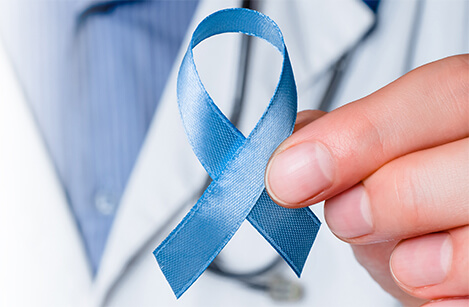
Get Professional Achalasia Treatment in Colorado
The gastroenterology specialists at Rocky Mountain Gastroenterology (RMG) are proficient at treating achalasia in Denver, CO. Our team comprises the most extensive gastrointestinal practice in the Rocky Mountain region, with 15 offices, six Endoscopy Centers, and a specialized pathology laboratory. Our state-of-the-art equipment and unrivaled expertise allow us to diagnose and treat achalasia effectively. Our patients are our main priority, so we invite you to present any questions or concerns you have about your condition immediately. The RMG team will discuss your symptoms and a possible course of action to remedy them. But do not hesitate to contact us. Your situation may worsen without expert medical attention. Call us today to learn more.
What Is Achalasia?
Achalasia is an esophageal disorder that impairs one’s ability to consume food. The esophagus is an organ that allows food to pass from the throat to the stomach. An element of the esophagus is the lower esophageal sphincter (LES), a muscular valve that closes the esophagus from the stomach. However, when achalasia suffers swallow, the LES fails to open. This causes a backup of food within the tube, which creates discomfort and increases the chances of choking. It may be difficult to find an exact cause of achalasia. It is hereditary but can also be the result of autoimmune conditions and nerve degeneration.
Recognizing the Signs and Symptoms of Achalasia
The frequency of achalasia is low. Reports show that it develops in only about 3,000 people in the U.S. annually. But achalasia symptoms can be troublesome for many reasons. People who have achalasia have difficulty swallowing and often feel like food is lodged in their esophagus. This feeling can include intense pain or discomfort in the chest, especially after eating. To avoid this sensation, many who have achalasia do not get enough nourishment and experience unhealthy weight loss. Sufferers are also at an increased risk of inhaling or choking on food. The condition typically occurs in adults, but children can develop it, too. If you regularly feel like food is backing up in your esophagus, set up an appointment with Rocky Mountain Gastroenterology in Denver so that we can diagnose achalasia or pinpoint whatever else is causing the problem.
RMG Can Quickly Diagnose Achalasia of Esophagus
If you have persistent difficulty swallowing foods and liquids, our gastroenterology specialists may suspect achalasia. We will attempt to confirm our suspicion using various exams at our state-of-the-art facilities in Denver. Among the most common tests for achalasia is esophageal manometry. This test involves placing a tube in your esophagus as you swallow to evaluate muscle activity and function. We can also diagnose achalasia using an x-ray or other imaging tests such as an endoscopy. Finally, we can enhance the x-ray findings by including a barium swallow. We will x-ray your chest after you swallow barium in liquid form so that we can monitor the element’s movement through your esophagus.
We Will Treat Your Achalasia Effectively
There is no cure for achalasia, but our doctors offer effective treatment approaches at the best gastroenterology clinic in the Rocky Mountain region. Our treatment strategies are designed to force open the LES to allow food to move through the digestive tract more easily. Treatment options include noninvasive techniques as well as achalasia surgery.
Nonsurgical Treatment
There are multiple nonsurgical treatment options for achalasia. The team at Rocky Mountain Gastroenterology can perform pneumatic dilation, which involves inserting a balloon into the esophageal sphincter before inflating it and enlarging the opening. Roughly one in three patients who opt for this approach need to repeat it within six years. We can also administer Botox for patients who are not good candidates for pneumatic dilation or surgery as well as various other medications to offer some relief.
Achalasia Surgery
Younger individuals do not always respond well to nonsurgical treatments, so RMG’s doctors perform various types of achalasia surgery in Denver, including:
- Heller myotomy – We can cut the muscle at the bottom end of the esophageal sphincter to facilitate a more comfortable passage of food into the stomach.
- Fundoplication – Our surgeons can wrap the top of a patient’s stomach around the LES to tighten the muscle and prevent acid reflux. This can be done in concert with Heller myotomy.
- Peroral endoscopic myotomy (POEM) – This involves creating an incision in the inside lining of the esophagus before cutting the muscle at the lower end of the esophageal sphincter. This approach does not include an acid reflux procedure.
Contact RMG for Achalasia Treatment Today
If you always feel as though your food is stuck in your chest or experience discomfort whenever you eat, you may need treatment for achalasia. The specialists at Rocky Mountain Gastroenterology can perform various gastroenterology procedures to ease your pain and help you eat comfortably and healthily again. We have several convenient locations throughout the Denver area, so we are never far from where you are. Contact us today to schedule an appointment.
Go back